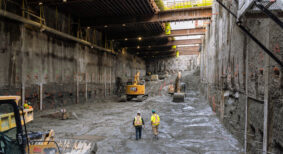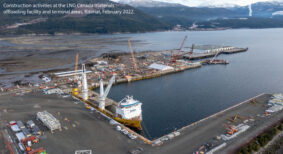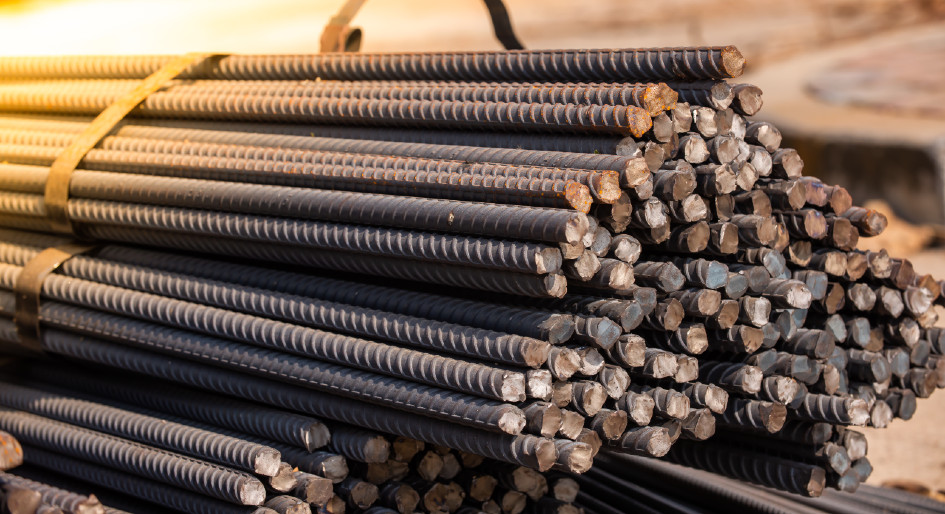Some construction rebar imports to Canada could be skirting international trade agreements. Canada Border Services Agency (CBSA) is currently investigating evidence that up to nine countries are dumping products that undercut domestic prices and are deleterious to Canadian manufacturers. The Canadian International Trade Tribunal (CITT) concurs that there are grounds to pursue the issues in question, which could result in punitive duties applied to future imports.
The CBSA action is separated into two separate investigations. The first was launched in September 2020 following a written complaint from Canadian manufacturers, and is directed at Algeria, Egypt, Indonesia, Italy, Malaysia, Singapore and Vietnam. The second is tied to what CBSA characterizes as a subsequent “surge of imports” from Russia and Oman, and was launched in December.
The investigations and the CIIT’s associated determinations are enabled under the federal Special Imports Measures Act (SIMA). If the CBSA concludes that dumping has occurred and the CIIT synonymously decrees that it has caused harm or threatens to cause harm to the domestic market then extra duties would be applied on imports from the offending countries for a five-year period. Retroactive duties could also potentially be applied on “massive importations” that occurred during the investigation period.
Notably, two decisions to apply anti-dumping duties have been rendered in recent years: in January 2015 on rebar originating in China, Korea and Turkey; and in May 2017 on rebar imported from Belarus, Chinese Taipei, Hong Kong, Japan, Portugal and Spain.
The new investigations focus on uncoated rebar produced using ferrous scrap metal as the principal raw material and are concerned with dumping margins — i.e. the difference between the deemed normal value in the exporter’s home market versus the price attached to the imported products — and their related impact on Canadian producers. Fabricated rebar and 10-millimetre-diameter rebar coated to comply with CSA or ASTM anti-corrosion standards are excluded from the CBSA’s assessment.
Collectively, the seven countries covered in the first investigation accounted for more than 69 per cent of total imports to Canada in the period from June 2019 to 2020. That’s up from 54 per cent in the 12 months from January to December 2019 and 19.4 per cent in 2018. CBSA gauges the countries’ dumping margins from a low of 11.4 per cent for Egypt to a high of nearly 59 per cent for Italy.
Perhaps accordingly, Italy’s share of the Canadian market grew from an estimated 2.8 per cent in 2017 to 10.6 per cent in the June 2019 to June 2020 period. The seven countries captured a 34 per cent share of the market in the same period, gaining sales from both domestic producers and other exporters.
“The CBSA finds that the evidence discloses a reasonable indication that the dumping of the subject goods from the named countries has caused injury to the domestic rebar industry in Canada,” the rationale for the investigation states. “The nature of the injury is well documented with respect to lost sales and price depression, price undercutting, price suppression and erosion, lost market share, reduced profits, reduced production and capacity utilization.”
Meanwhile, CBSA attributes the sudden emergence of Oman and Russia largely to this investigation. Construction rebar imports from the two nations grew from negligible volumes in the Canadian market prior to June 1, 2020 to 8 per cent and 6 per cent respectively during the following six months. CBSA estimates dumping margins at 7.2 per cent for Oman and 42.5 per cent for Russia.
Along with undercutting Canadian producers, prices for the Oman and Russian rebar imports were deemed “well below the average” for the seven countries named in the earlier investigation. Additionally, it has previously been determined that Oman was dumping carbon steel pipe into the Canadian market; the United States has instigated trade remedies on steel products against both Oman and Russia; and the European Union has also made findings against Russia for “multiple steel products” — signalling what the CBSA terms “a propensity to dump steel exports”.
Citing “unusually difficult” circumstances, CBSA has enacted an allowable 45-day extension for completing its investigation of Algeria, Egypt, Indonesia, Italy, Malaysia, Singapore and Vietnam, moving the initial December 21 deadline to no later than February 4. A decision related to Russia and Oman is also expected next week, with the CIIT scheduled to announce whether there is reasonable indication that dumping and injury has occurred.
If so, that would trigger the next step, which would call on CBSA to make a preliminary determination of whether dumping has occurred by March 4. Reading between the lines of CBSA’s observations, it might also be reasonable to expect that the issue could arise again as steel producers worldwide face a downturn.
“The CBSA agrees that the evidence shows that the international economic outlook is generally weak, and the market and demand for rebar is weak and pressured by massive global overcapacity in the steel industry combined with global rebar prices in decline,” it states.










